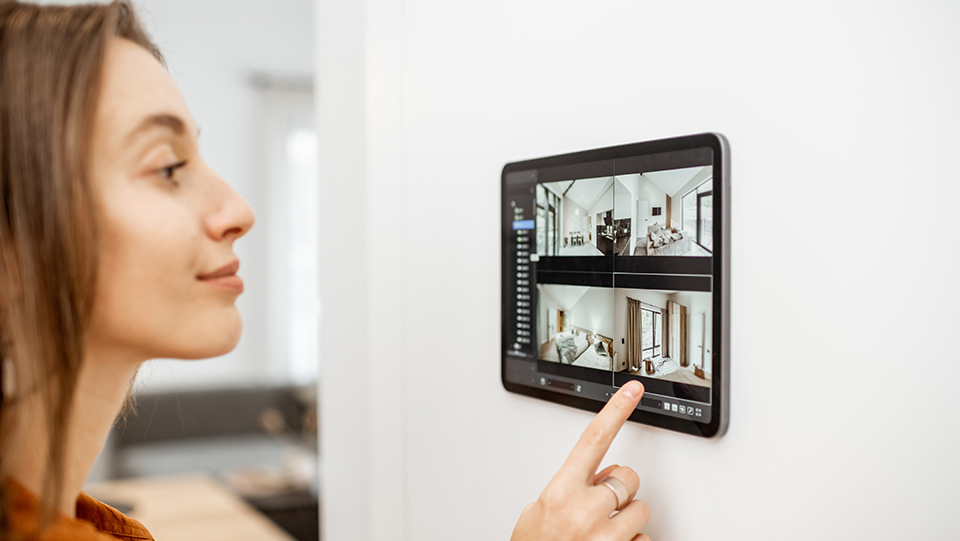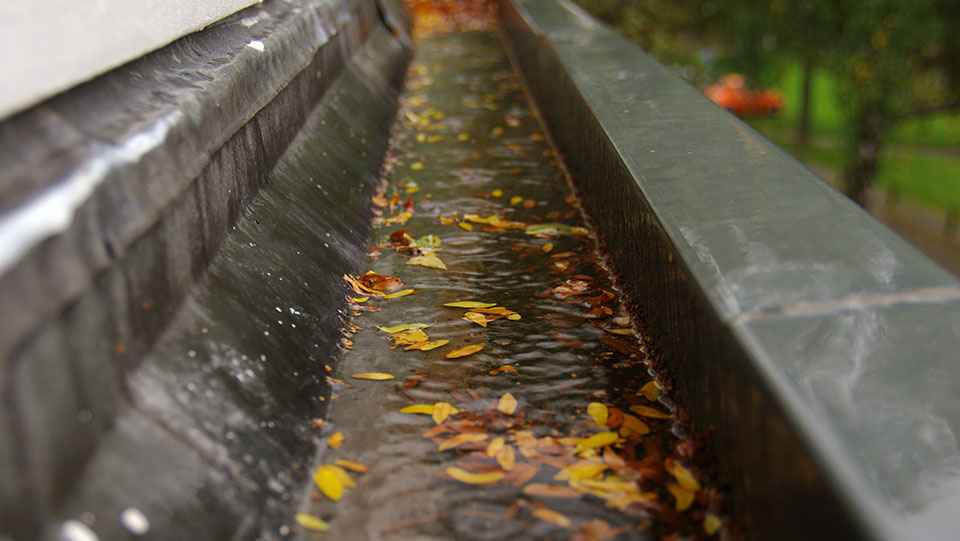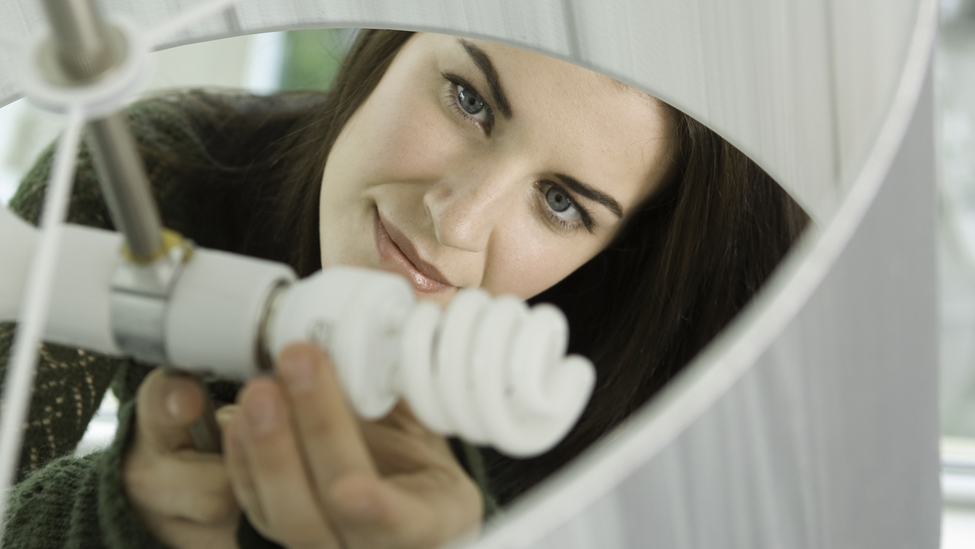How Water Sensors Can Help Prevent Costly Water Damage

(DESCRIPTION)
Logo, Travelers. Text, Plumbing: What are Smart Water Sensors? An animation shows a water heater in a basement with a leak at the bottom. A device shaped like a smoke alarm sits on the floor about a foot from the water heater. It blinks yellow as the puddle on the floor reaches it, then emits red arcs from the top.
(SPEECH)
SPEAKER: A smart water sensor detects the presence of water and sends you an alert through an app on your phone.
(DESCRIPTION)
A split screen shows a hand holding a phone, the screen reading, Leak Detected.
(SPEECH)
You'll want to place smart water sensors near appliances or plumbing fixtures that use water, including your washing machine, dishwasher, refrigerator, hot water heater, sink, and toilets.
(DESCRIPTION)
A sensor appears on the floor next to a washing machine in a laundry room.
(SPEECH)
Smart water sensors are available online or at hardware or home improvement stores.
(DESCRIPTION)
A cross-section view of a house shows each room. Water sensors in each room are pointed to with red arrows as the speaker describes them. A smart water sensor appears above a laptop and a hardware store.
(SPEECH)
Keep in mind, not every water sensor system is right for your home. Make sure you review the manufacturer's requirements and instructions.
(DESCRIPTION)
Boxes of different water sensors go by on the screen, most circular in different styles, and one that attaches to a pipe. A red arrow points to a text box on the side of a Water Sensor box.
(SPEECH)
And if you're not comfortable setting it up yourself, contact a professional to assist you.
(DESCRIPTION)
A split screen shows a hand holding a phone with a plumbing professional contact.
(SPEECH)
Talk to your Travelers representative or independent agent today.
(DESCRIPTION)
Logo, Travelers. Text, Talk to your Travelers representative or independent agent today. Travelers.com.
Travelers Casualty and Surety Company of America and its property casualty affiliates. One Tower Square, Hartford, CT 06183. This material does not amend, or otherwise affect, the provisions of any insurance policy issued by Travelers. It is not a representation that coverage does or does not exist for any particular claim of loss under any such policy. Coverage depends on the facts and circumstances involved in the claim or loss, all applicable policy provisions, and any applicable law.
If the water supply lines on your washing machine fail, it can cause significant damage to your home. If that leak goes undetected because you are away from home, the accumulated water can cause potentially catastrophic damage.
From moldy walls to damaged, unreplaceable personal belongings to warped floorboards, virtually every surface in your home is exposed to potential water damage. The smart technology in water-sensor systems can help quickly alert homeowners of potential leaks and prevent the need for costly and time-consuming repairs.
Water damage is a common and costly cause of loss in the home. Today, smart home technology is helping consumers manage their personal risks. In addition to potentially mitigating serious damage, water sensors can also help a homeowner avoid the loss of personal possessions and the hassle of coordinating disruptive repairs to their home.
How do water sensors work?
Water sensors detect the presence of water and, when placed in locations where water should not be present, a leak. When Wi-Fi is enabled, the sensor can send out a notification to the homeowner through a smartphone app. If the homeowner will be out of town, family members, friends or other caretakers can be designated to receive notification of a leak so they can act quickly to help prevent further damage.
Some water-sensor systems can be programmed to shut off the water to the house to help prevent a small leak from becoming a large one. If your home is heated by an older steam-heating system, or if it’s protected by an automatic fire sprinkler system, check with a qualified professional before installing sensor-activated water shutoff devices.
Where should water sensors be placed?
It’s a good idea to place water sensors in areas where water damage inside the home can occur, often without warning. Those areas include: washing machines, hot water heaters (they may fail), dishwashers (they may leak), supply lines to automatic ice makers (they may be damaged) and toilets (they may overflow). Performing regular maintenance and visually checking for rusty, corroded, worn or damaged water supply lines and valves and other potential problems before you have a leak is one of the best ways to help prevent water damage.
You might want to install water sensors in areas near:
- Washing machines
- Dishwashers
- Refrigerators with ice makers and water dispensers
- Hot water heaters
- Sinks
- Toilets
- Furnaces and boilers
- Fish tanks
Typically, water sensors and their control modules are available at most home improvement stores and online. There are numerous options available. Consider doing some research to determine which options best fit your needs and budget. Note that some devices only work once and then need to be replaced, while others are designed for extended use. Also, if you are not comfortable installing them yourself, contact an experienced professional for help with proper installation and setting up the app to ensure that you receive notifications of potential leaks.
Here are more tips on how to prevent water damage at home.



